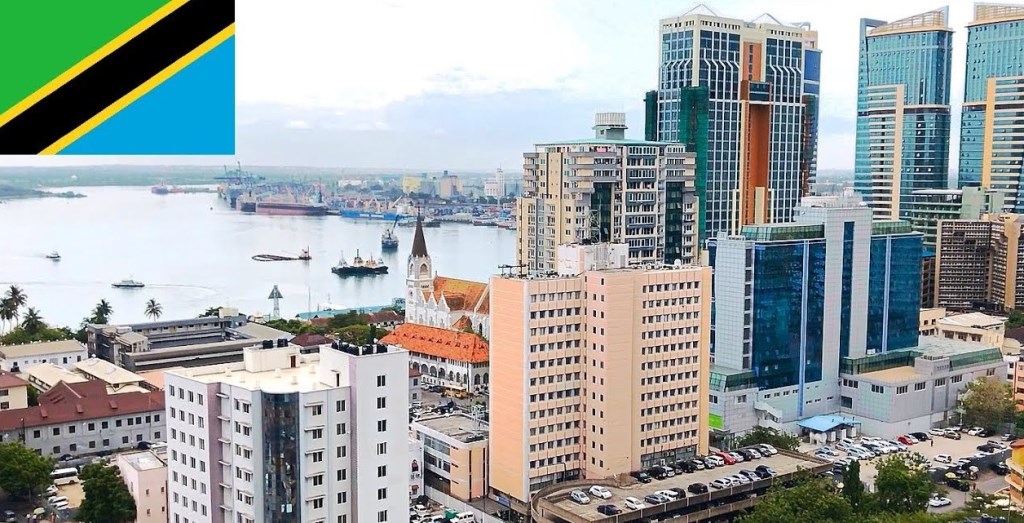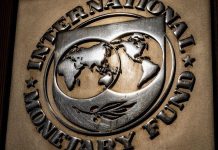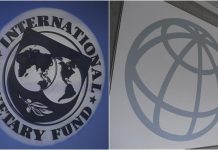TANZANIA’S economic conditions remain stable on account of prudent fiscal and monetary policies, the International Monetary Fund (IMF) said on Thursday at the end of a mission of IMF staff teams in the country.
The Bretton Woods Institution team met with the Minister of Finance and Planning, Dr Philip Mpango, the Bank of Tanzania (BoT), Governor, Prof Florens Luoga, other senior government officials and representatives of the business and banking sectors and development partners.
“The pace of economic activity appears to have increased in recent months, prompted by higher public investment, a rebound in exports, and an increase in credit to the private sector,” IMF said after completing 2020 Article IV Mission to Tanzania.
For example, Tanzania has invested heavily on infrastructure development, namely the Standard Gauge Railway (SGR) with the stretch from Dar es Salaam to Dodoma having reached various stages of construction.
The construction of the Nyerere Hydro power project for the generation of 2,115 megawatts alongside other natural gas power projects are among the huge insupervise 23 institutions which are under the ministry of agriculture so that they can efficiently execute their duties for the benefit of Tanzanians, majority of whom depend on agriculture.
President Magufuli said that he appointed Mr Kusaya as PS due to his outstanding performance in leading a probe team to investigate cotton, cashew nuts, tobacco and sisal crops in the vestments in the energy sector that will ensure sufficient electricity to the country.
Revenue exports, according to the BoT monthly economic review for February this year, rose to over 22.8tri/-(9,915.6 million US dollars) compared to about 19tri/- (8,262.7 million US dollars) recorded in corresponding period of 2019 due to increase in both value of good exports and service receipts. During the reference period, the private sector credit grew by 9.1 percent compared with 7.3 percent in the year ending January 2019.
On account of increase in loanable funds resulting from sustained accommodative monetary policy, expansion of various economic activities, and measures implemented by the government to improve the business environment.
As a result, the IMF said the real Gross Domestic Product growth is estimated to be close to 6 percent, with activity buoyant in the construction and mining sectors.
“Other economic indicators point to a benign economic environment, with annual inflation at 3.7 percent, a stable exchange rate, foreign exchange reserves equivalent to near 5 months of imports, and public debt at below 40 percent of GDP,” IMF said.
The gross official reserves, according to the BoT latest monthly report for January, was 5,532.1 million US dollars as at end of January 2020, sufficient to cover 6.4 months of projected imports of goods and services, excluding foreign direct investment related imports.
The IMF also commended the government’s commitment to take steps to improve the quality and timeliness of indicators of economic activity and of GDP through improvements in economic surveys and publication of high-frequency indicators and surveys’ results as well as of the fiscal accounts.
To sustain these gains and meet the targeted economic reforms, the Bretton Woods Institution said there is need to increase private investment and create jobs.
The mission team commended the authorities for their intention to improve governance in tax administration and emphasized the urgency to adhere to efficient means of tax collection and control, notably through the use of risk-based audits.
“This will ensure better compliance and timely payment of tax refunds and improve companies’ cash flows,” IMF said.
Adding, although a comprehensive review of tax exemptions and their further rationalisation, particularly of income tax incentives, is also needed, there is significant and immediate revenue potential from the expansion in the number of taxpayers together with improvements in tax administration and compliance in line with established protocols and regulations.
With regards to government spending, the implementation of planned measures to clear the backlog of expenditure arrears, account for them on a timely basis, and prevent the accumulation of new ones will be essential to improve businesses’ cash flows, ensure that bank loans are paid back on time, and sustain economic activity.
In addition, spending on health and education will need to be scaled up in coming years while ensuring quality of education and medical services and address key infrastructure gaps.
Such expenditures will need to be carefully designed and prioritised in order to reap potential benefits in terms of better social conditions and high rates of economic growth.
Furthermore, IMF commended the financial system remains stable and the authorities plan to proceed with measures to further reduce non-performing loans and improve banking supervision to protect banks’ soundness.
To lower the costs of borrowing and improve access to credit, broadening the pool of acceptable collateral, improving the framework for credit information, and tackling judicial bottlenecks for the recovery of unpaid loans will be particularly important.
The economic prospects also depend on enhancing the attractiveness for investing and producing in Tanzania and increasing the skills of the labor force.
On the former, IMF said in addition to the authorities’ anti-corruption stance, there is need to accelerate the implementation of business environment reforms (the Blueprint for Regulatory Reforms) starting with the publication of the action plan containing a timetable and a delineation of responsibilities, the rationalisation of agencies and licenses and permits, and the removal of non-tariff barriers to trade.
On the latter, following up on the regular dialogue with the private sector and investing in education and expanding training and vocational programs will be critical, together with a more flexible and expeditious system of visa/work permits for specialised foreign workers.







